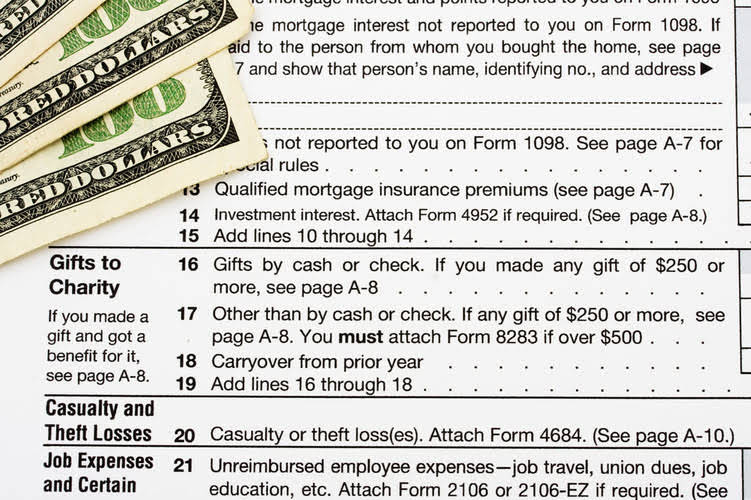How to Calculate Total Assets: Definition & Examples
2 de março de 2021Cobra Casino recenzja i opinie: 4300 zł bonus KasynoPolska
20 de julho de 2021
Think of full charge bookkeeping as a mix between traditional bookkeeping and accounting. You must handle day-to-day bookkeeping tasks along with full-cycle accounting duties. The choice between hiring a full charge bookkeeper or an accountant ultimately depends on the specific needs of a business. Smaller businesses with relatively straightforward financial transactions might find a full charge bookkeeper sufficient to manage their financial records. At the same time, larger businesses, or those with more complex financial needs, might require the advanced expertise of an accountant. To reconcile bank statements effectively, you need to carefully review each transaction, match them with corresponding records, and investigate any discrepancies.

Bookkeeping for Artists: Simplifying Finances for Creative Professionals
While regular bookkeepers record financial transactions, create reports, process payroll, and manage customer payments and invoices, a full charge bookkeeper’s tasks extend beyond this. They take on the additional role of accountant and usually have broader managerial responsibilities. https://www.bookstime.com/ They should also prepare financial statements, maintain the ledger, and perform all the other bookkeeping services. Bookkeeping is essential to any successful business, ensuring accurate financial records and providing vital insights for decision-making.
- An in-house bookkeeper typically focuses on a narrower range of duties, often reporting to a controller or accountant.
- Most companies that reach the point of needing a full-charge bookkeeper will have plenty of other lower-level functions to manage.
- They are involved in the day-to-day operations and play a strategic role in the business’s financial health.
- A CPA, or a certified public accountant, is a licensed accounting professional.
- Full charge bookkeepers usually seek external assistance from a certified public accountant or a controller.
- It is important to note, however, that filling the role of a full-charge bookkeeper requires careful consideration.
Roles and Responsibilities of Full Charge Bookkeeper
Controllers generally have the authority to make day-to-day financial management decisions, identify and solve highly specialized accounting concerns, and handle all the duties of a bookkeeper. A full charge bookkeeper and a regular bookkeeper may seem similar at first glance, but they have distinct differences in terms of their scope of work. A full charge bookkeeper is responsible for managing all aspects of a company’s financial records, from recording transactions to generating financial statements. They handle everything from accounts payable and accounts receivable to payroll and tax preparation. In contrast, a regular bookkeeper typically focuses on specific areas of financial management and may not have the same level of responsibility or authority. As a full charge bookkeeper, you will have a range of responsibilities that are essential to the financial management of a business.

You’re our first priority.Every time.
- This process helps to identify any errors in recording transactions, such as duplicate entries or missing transactions.
- Consequently, full-time bookkeepers bear greater accountability and typically have a direct reporting line to a business’s upper management.
- Automation and technology have revolutionized the way bookkeeping tasks are performed.
- While full charge bookkeepers maintain accurate records and help keep the financial wheels turning, accountants often use the data bookkeepers provide to guide strategic financial decisions.
- They are often entrusted with making financial decisions on behalf of the company, such as approving expenses and managing cash flow.
Bookkeepers and accountants share the same long-term goal of helping your business financially thrive, but their roles are distinct. Bookkeepers focus more on daily responsibilities, like recording transactions, while accountants provide overarching financial advice and tax guidance. Full charge bookkeepers can take on some roles of a financial controller and can become certified public accountants if they pass the exam. The demand for full charge bookkeepers has been steadily increasing, particularly among small businesses.

AccountsBalance
With their expertise, they can streamline your financial processes, identify cost-saving opportunities, and help you make informed decisions to improve your bottom line. The cash flow statement tracks the company’s cash inflows and outflows during a specific period. It helps assess the company’s ability to generate and manage cash, which is crucial for its day-to-day operations and long-term sustainability. To effectively manage accounts receivable, you will need to stay on top of invoicing, payment collection, and follow-up on any outstanding balances. This requires strong attention to detail and excellent organizational skills.
eCommerce Sales Tax Software: Top Solutions for Hassle-Free Tax Compliance
Understanding which type of accountant will most benefit a business’ current status is crucial to achieving future goals and answering the frequently asked question of “do I need a bookkeeper or a controller? Bookkeeping is a more technical job that requires employees to perform calculations, record data and use software programs. They may spend most of their time working what is a full charge bookkeeper alone or with other bookkeepers on projects. If you want someone with a higher level of mastery in accounting, consider hiring a certified public accountant. CPAs are accountants who have completed a higher level of education and have passed the CPA exam. CPAs also need to keep their certification current, so they’re often up to date on important tax law changes.
- The difference between a bookkeeper and a full charge bookkeeper can also impact how a business manages its financial operations.
- Some companies find their own in-house bookkeepers can fill the role with a little extra training.
- Even the smallest error or omission in financial data can have significant consequences for a business.
- They keep track of all money coming in and going out, as well as preparing reports on the company’s financial activity.
- In this post, we’ll look over what a full charge bookkeeper does, how much it costs to hire one, and where you can find one.
While these aren’t strictly necessary, hiring managers are more likely to gravitate to resumes with these experiences and backgrounds. It breeds confidence in a candidate’s abilities, competencies, and knowledge of best practices and industry standards. Plus, instead of hiring CPAs, you can pay for only the CPA services your full service bookkeeper can’t perform. Obtaining professional certifications is a way to showcase your expertise and commitment to the field of bookkeeping. While certifications are not always required, they can significantly enhance your credibility and open doors to better job opportunities.
Focus on Core Business Functions
How Outsourced Bookkeeping Services Can Help


